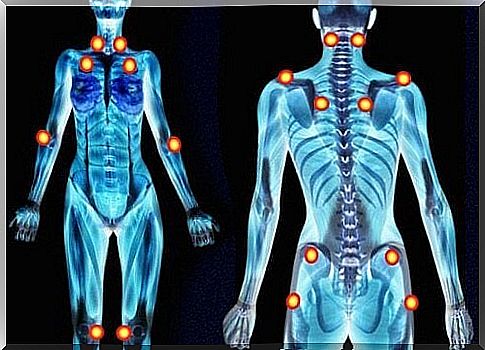Five Early Signs Of Fibromyalgia

Fibromyalgia is a condition recognized by all medical institutions (and the World Health Organization since 1992). The condition is undoubtedly more common in women than in men. And the signs of fibromyalgia are hard to spot.
To this day, fibromyalgia poses a challenge to both science and medicine. That’s because the clinical profile and symptoms can be very broad. It can range from chronic pain in the musculoskeletal system to irritable bowel syndrome, to overactive bladder disorders, sleep disorders, bruxism….
The hypersensitivity to pain and the mood swings that this condition causes are both common realities – as well as limitations in daily life – that many patients face.
The pain can paralyze patients. This makes it difficult to develop a complete and functional treatment that can help to restore the quality of life of patients.
As always when it comes to chronic conditions, it is important to collect as much information as possible. It is also good to be part of a support group. After all, it will help patients try different treatments until they find one that offers the best results.
In this article, we want to teach you about five early signs of fibromyalgia that you absolutely shouldn’t miss.
The Early Signs of Fibromyalgia
Let’s start by emphasizing an important aspect. On average, it takes quite a while for someone who suffers from fibromyalgia to receive the correct diagnosis. This is mainly because the symptoms can be very far apart.
It is quite common that they have to visit all kinds of different doctors and experts in order to eventually arrive at the correct diagnosis. If you yourself suffer from fibromyalgia, you may have often been told that your symptoms indicate rheumatic diseases or arthritis.
However, fibromyalgia is much broader than that.
Neurologists have found that fibromyalgia is not really a rheumatic disease at all. However, it is a problem that originates in the central nervous system.
That is why it is important to pay close attention to the following signs of fibromyalgia. When these symptoms persist for a long time and are accompanied by other problems, it is time to make an appointment with a good professional.

petrification
Petrification or the feeling that your joints are getting stiff is very painful.
- This paralyzing feeling usually occurs in the morning. It is also one of the earliest symptoms of fibromyalgia.
- When you have been sitting or lying still for a long time, your body and joints do not react in the same way.
- You may also experience this symptom when exposed to temperature changes or moderate humidity.
An example could be when you are initially in a room with the air conditioning on. Then when you leave the room and notice a difference in the temperature around you, you get a headache and a stiff neck and shoulders.
Sleep disturbances
People who suffer from fibromyalgia can get enough sleep and still be tired the next morning when they wake up. It’s like they only slept a few hours.
Multiple studies in this area show that during the deepest stage of sleep (the third stage), these people may suffer from disturbances in their brain waves that induce calmness. This means that although these people are sleeping, their bodies are not actually resting.
Minor cognitive glitches

People with fibromyalgia often report that one of the first symptoms they experienced was a lack of concentration. In some cases, however, they spoke of a slow ability to concentrate on certain tasks.
- These types of problems are known as “fibro fog” or “brain fog.” They are characterized by minor glitches in memory or difficulty doing several things at once.
- It is important to point out that these symptoms can also be related to stress. Are you trying to determine whether or not your symptoms indicate fibromyalgia? Then it is wise to also look at some other, clearer symptoms (joint pain, fatigue, etc.).
Unpleasant feeling in the abdomen
Many people with fibromyalgia often suffer from various digestive problems as well. These occur at an early stage and cause the following symptoms:
- Abdominal pain, constipation or diarrhea
- Irritable bowel syndrome
- Difficulty processing or swallowing food. Experts indicate that fibromyalgia can sometimes cause problems with the muscles in the esophagus.
Myofascial Pain Syndrome
Myofascial pain syndrome is a neuromuscular disorder. In addition, painful points (also known as trigger points) are formed around muscles or connective tissue.
- Do you suffer from painful, repetitive movements in unexpected parts of the body ? then this may be an indication of this condition.
- Sometimes a heavy shopping bag already cause a sharp pain in the neck, shoulder and sometimes even elbow. Try not to forget that.

Remember that fibromyalgia can affect each person differently. In addition, there is simply a wide range of symptoms. However, some symptoms are a little more common than others.
We recommend that you seek help if you experience any of the above symptoms repeatedly. After all, you do not want the disease to start to affect your quality of life more and more.









